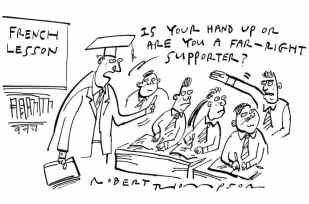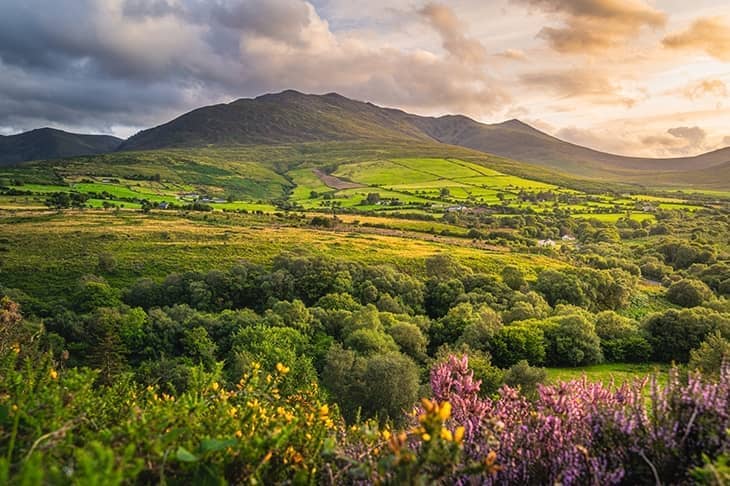The Irish rarely understate their achievements. Yet there is one exception. Over the centuries, the links between Catholic Ireland and the Bordeaux wine trade have been fruitful. O’Brien (Pepys’s Ho Bryan, now Haut Brion), Lynch, Barton and many other names: these are enduring memorials to a fruitful relationship.
But the best-known Hibernian exiles were warriors. From the 16th century onwards, Irish soldiers served with distinction in continental armies. Their numbers increased after the Battle of the Boyne. London wanted to break the power of Gaelic, Catholic Ireland for all time, and one way of doing so was to expropriate the native landowners. Many of them decided to repair their fortunes elsewhere. They became known as the Wild Geese.

A fellow called Patrick MacMahon from Dooraboyle near Limerick was one of their number. He set off for France and was the ancestor of the most famous Wild Goose of them all. This was Patrice MacMahon, who became a general and played a crucial role in the conquest of Algeria. He then commanded the French and Piedmontese armies at the Battle of Magenta. For good or ill, his victory accelerated the pace of the Risorgimento. As a reward he was created a Marechal of France and the Duke of Magenta. He became the first president of France after the defeat of 1870 and tried to restore the monarchy. That would have been his noblest service, but alas, there was no agreement as to which dynasty should reign.
Today, the Marechal’s descendants make excellent wine, though in Burgundy rather than Bordeaux. Their estate is based on the Château de Sully, a Renaissance palace, which produces several premiers crus. Exile has been kind to these Wild Geese turned wine geese.
They are not the only ones. A chap called Lochlann Quinn is an exemplar of the new Ireland. He seems to have done almost everything. Chairman of a bank, benefactor of a business school, the National Gallery of Ireland and other good causes, he also used some of his riches to buy the Château de Fieuzal in Graves. It had once been owned by the Rochefoucault family, so there is a tradition of good talk appropriate to an Irish proprietor. The enterprise is now run by Lochlann’s son Darragh and the Quinns have spent considerable sums in pursuit of excellence and with little regard for profit. The result: first-class wines, both white and red. They are all classic Graves, with that gravelly minerality endowed by the retreating glaciers at the end of the last ice age.
The most famous Wild Goose of them all was Patrice MacMahon
I tasted some the other evening. A blend of Sauvignon Blanc and Semillon, the Fieuzal Blanc 2018 was an ideal aperitif wine which would also cope easily with smoked fish, fish in general and chicken. It had a sophisticated crispness, with a hint of tobacco, reminiscent of Haut-Brion. It is a wine which exudes class and it will be fun to taste its evolution over the years.
The reds were even finer. The 2009 and 2010 had benefited from some bottle age, but could stand a lot more. As serious claret ought to be, these wines are a harmony of fruit and tannins. Moreover, given their quality, the wines of Fieuzal are very good value. Salutations to the wine geese.






Comments